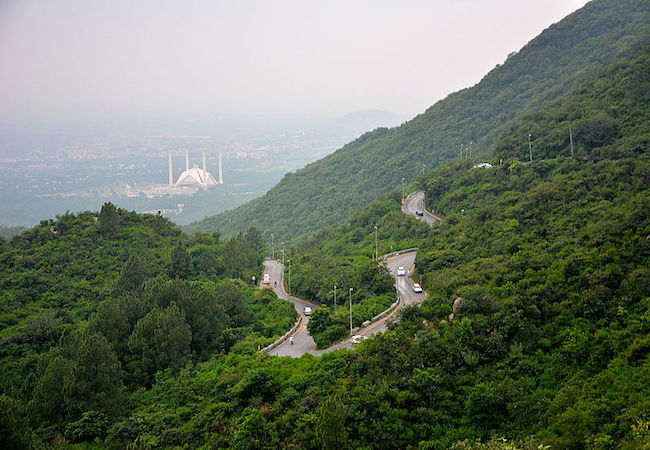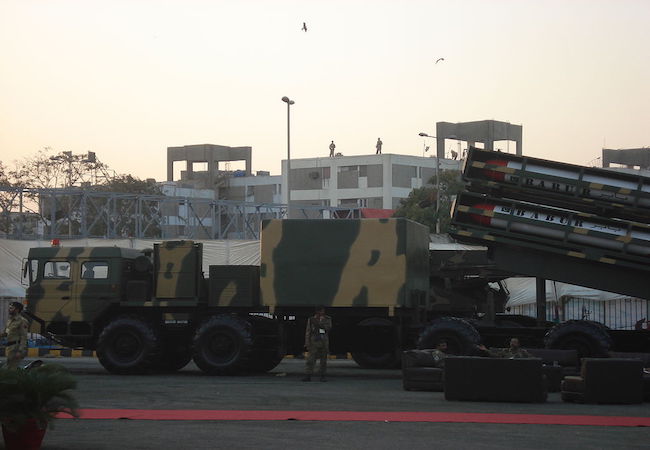
By Dr. Syed Shahid Hussain Bukhari
Non-proliferation concerns in contemporary international politics have emerged as a tool to achieve foreign policy objectives by the leaders of so-called global nuclear order. The Nuclear Weapon States (NWS) under the NPT have monopolized the rules of the game in such a way that pretend to save international peace but serve the strategic interests of major powers. The pragmatic approach in international relations suggests that morality has nothing to do with the state affairs and, with this reference, the analysis of India-US nuclear deal has proven that international non-proliferation regimes work in accordance with the Realist perspective under the guise of Liberalism to serve the strategic interests of major powers.
Since Pakistan has also been a candidate for a treatment like that was adopted for India but it could not gain the same treatment despite having longstanding partnership with the United States in various endeavors from Containment Policy against the USSR to War on Terror in Afghanistan. Discussing the prospects for Pakistan’s accession into the fragile global nuclear order, Toby Dalton and Micheal Krepon pretend to advocate for Pakistan’s entrance into the global nuclear order suggesting some streamlining measures if Pakistan agrees to take on. The case built by Krepon and Dalton appears to ignore Pakistan’s strategic imperatives as well as tries to change its entire National Security discourse in a manner that ultimately serves the strategic interests of India whom the US is overwhelmingly supporting due to her surge for containment of China. Such kind of narratives suggest that What India itself has not been able to do in the last 68 years (to subordinate Pakistan), it is now trying to get it done through the US by using her leverage in the US policy circles due to the strategic partnership.
Discussing the prospects for mainstreaming Pakistan into the global nuclear order, Krepon and Dalton have suggested Pakistan to rely on ‘Strategic Deterrence’ rather than outcompeting India through ‘Full Spectrum Deterrence’ if it wants to achieve a place in the emerging nuclear order of the world. Outlining a comparison of India-Pakistan nuclear warheads production capabilities, the study has neglected to compare the National Security imperatives of both the states where Pakistan has always been in search for defense against aggressive Indian postures as well as direct threats. Pakistan’s strategic developments in each field including nuclear program cannot be analyzed without reference to its strategic rivalry with India who has been hesitant to accept the reality of Pakistan as an independent state in the region. It is noteworthy that Pakistan’s strategic policies have always emerged as a reaction to the Indian threats either it was the initiation of nuclear weapon development program after 1971 Dhaka debacle and Indian nuclear test in 1974, nuclear tests after the Indian test in 1998 or the development of tactical nuclear weapons in response to India’s Cold Start doctrine. Therefore, Pakistan’s nuclear weapons cannot be de-linked from Indian developments. Since Pakistan’s defense policy has always been on the ‘Defense Mode’, its current strategy of ‘Full Spectrum Deterrence’(FSD) is also aimed at to reduce the dangers of nuclear escalation which may emerge from India’s superiority in conventional war-fighting capacity combined with adventurous intentions for regional hegemony. The FSD is an expression of ‘Deterrence Optimism’ in South Asia entailing the contours of strategic stability based on nuclear deterrence. The FSD strategy shall also contribute to neutralize the negative outcomes of the regional strategic developments in Asia where India is obtaining unprecedented help from the United States for modernization of its armed forces which are aiming at to launch India as the regional sheriff.
The induction of FSD shall contribute to reduce the apprehensions about strategic stability in the region as well. The escalation control over the ongoing tensions on LOC and International border between India and Pakistan is the most recent example which manifests the contributions of TNWs for restraining even a conventional war in South Asia, and therefore, a positive indicator for maintenance of peace in the region. The qualitative development of strategic weapon systems has always been a normal course of action for any state that needs to maintain her security in accordance with the advancing requirements for strategic objectives, therefore, cannot be abandoned. The development of FSD in Pakistan is also a part of such qualitative developments which carries the offshoot of quantitative enhancement in its arsenal, but limiting the manufacturing of such arsenals to a minimum required number (calculated through operational strategy) can reduce the chances of arms race and keep the FSD within the ambit of ‘Credible Minimum Deterrence’ where the FSD plugs-in the lacuna in conventional warfare deterrence carrying qualitative development that enhances the state’s capacity to deter each kind of aggression ranging from limited conventional aggression (like Cold Start) to the nuclear threats, therefore, it should not be synonymic with arms race in terms of quantitative development. A ‘Reverse Gear’ in strategic policy design shall encourage India to use American shoulders for the fulfillment of her adventurist ambitions in the region which shall have negative consequences for the regional stability. However, the arms race should be avoided through limiting the quantity of weapons to a number where it can keep intact the ‘Credible Minimum Deterrence’ policy supported by qualitative sophistication through FSD.

It shall be a Herculean task to convince a sovereign state to halt the production of her ‘Strategic Assets’ that are detrimental to her National Security. Pakistan’s stance on FMCT is also integrated with its National Security imperatives which do not allow it to even negotiate FMCT because of evident discriminatory policies of the so-called global nuclear regimes whose policies can be amended to accommodate a particular state by introducing country-specific arrangements. The fragility of emerging nuclear order that serves the strategic interests of major powers, itself guides the security-stricken states like Pakistan that it should ensure her survival based on the principles of self-help. The deliberate over-sightedness of international nuclear non-proliferation regimes and the US policymakers about the history of Indian nuclear as well as missile development programs has apprehended Pakistan’s will to reduce the fissile material production who was the first country to propose the denuclearization of South Asia at the UN Atomic Energy Conference held in Mexico in September 1972. The rejection of Pakistan’s proposal for South Asian Nuclear Weapon Free Zone (NWFZ) compelled it to pursue a nuclear path at that time, and the US assistance to India through Strategic Partnership entailing blind-eyes on Indian nuclear program rather extending assistance coupled with defense cooperation along access to advanced US technology in nuclear, space, and missile defense proved to be an eye-opener for Pakistan in contemporary strategic environment. The only way to accept the arrangements like FMCT is to make it a supplementary part of a treaty among all the South Asian states for ‘Nuclear Disarmament and South Asian Nuclear Weapon Free Zone’.
Based on the premise cited above, signing CTBT without waiting for India is also out of question. Although Pakistan is not in favour of conducting nuclear tests again and again but it cannot afford to forego its right to conduct tests in case of a situation like 1998 emerges again. The focus of global nuclear scholars alone on Pakistan, which usually advocate changing its National Security discourse, is quiet unrealistic. In a world of Realist security paradigm, it is not plausible to mould the entire National Security discourse of a nation in accordance with one’s own strategic interests. Above all, what maximum Pakistan can extract if it agrees to take on the steps suggested by Krepon and Dalton? Mainstreaming in the fragile global nuclear order and nuclear cooperation is yet not guaranteed.
Even if some states agree to cooperate with Pakistan in civilian nuclear technology, that too will be dependent on mutual strategic interest of the states concerned. And if the mutual strategic interests are the basic ingredient for such cooperation, how will this be wise to rush for such measures that may put the National Security imperatives of a state at stake. Therefore, the analysis of measures suggested by Krepon and Dalton for mainstreaming Pakistan into a global nuclear order suggests that such measures, if taken, shall cripple Pakistan’s nuclear program, which shall prove to be a departure from Pakistan’s National Security imperatives based on nuclear deterrence, and therefore, perilous for Pakistan’s security. Desires for a ‘Normal Nuclear Pakistan’, as suggested by Krepon and Dalton, can be fulfilled only through equal desires about India as a ‘Normal Nuclear India’ as well as a ‘Normal Regional Player’.
Pakistan’s adherence to the suggested measures alone cannot strengthen the global nuclear order unless a uniform policy as well as commitment by the entire international community regarding use and regulation of nuclear technology is sought. A global nuclear order run by the weak nuclear non-proliferation regimes with state-specific discriminative policies based on strategic interests of the major powers shall always remain fragile.




